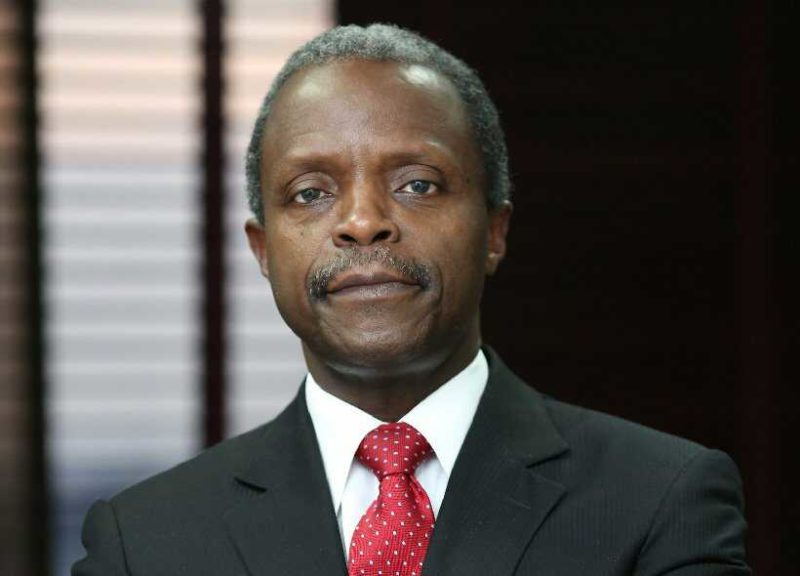In the race to achieve net-zero emissions by 2050, the Nigerian Vice President, Yemi Osinbajo, has called on developing countries to chart their own paths by embracing a just transition, climate action and future prosperity to power their development pathways.

“The global energy transition must be inclusive, equitable and just, taking into account the different realities of various economies and accommodating various pathways to net-zero by 2050.” Osinbajo said.
“So, what is the case for justice, social justice, fairness? What is often not sufficiently considered in thinking through the transition to net zero emissions is the critical role that energy, in our case gas, plays in catalysing economic development and supporting people’s health and livelihoods especially in poorer countries,” he added.
The Nigerian Vice President made these remarks in his keynote address at the Columbia University’s Global Energy Forum on Tuesday, May 18, 2021.
“Nigeria and countries across Africa are committed to a net-zero future, especially given their vulnerability to the adverse effects of climate change and all have expressed commitment to their national development contributions under the Paris Agreement, however greater support in developing and implementing robust energy transition plans is needed.” Osinbajo said.
“Clearly the continent will require an unprecedented scale of investment. An energy mix compatible with a 1.5 degrees Celsius pathway would require $40 billion to flow to sub-Saharan Africa annually; a fourfold increase compared to the $10 billion invested in 2018,” he noted.
Climate change has emerged as the most pressing and urgent challenge for the achievement of the Sustainable Development Goals (SDGs), the ideals of Agenda 2063 and attaining the objectives of the Paris Agreement.
According to Jean-Paul Adam the director of the Technology, Climate Change and Natural Resources Division (TCND) of the Economic Commission for Africa (ECA) “Just Transition”, is an emerging vogue in the rapidly evolving climate discourse, which refers to deliberate shifts of investments to environmentally and socially sustainable economies.
Just Transition has gained significant reach in the recent past as countries realign their post-pandemic recovery measures and prepare through adoption of increased adaptation commitments for the global climate talks (COP26) designated for Glasgow, UK in November 2021.
“Countries including the US, China, Japan, and large parts of Asia and the EU include gas as a major pillar of their multi-decade decarbonisation strategies, including actively developing African gas in countries like Mozambique, Ghana, Senegal, and Nigeria for export to Asia and Europe, while limiting financing to gas projects for domestic use in those countries.” Osinbajo noted, challenging the developed nations to incorporate fair and just measures as they adopt climate action.
The Nigerian Vice President’s remarks, which amplify Africa’s climate message, continue to elicit and generate numerous reactions and responses from leading environmental think tanks and climate justice advocates.
According to Todd Moss of the energy think-tank, Energy for Growth Hub, Osinbajo’s remarks are “a major breakthrough in the global conversation about what climate justice and climate action mean for low emitting, energy poor countries.”
It is significant to note that Osinbajo’s speech reflects the wider continental efforts led by the ECA aimed at rejuvenating Africa’s post-pandemic economic restructuring into a climate-smart green future.
“Reliable energy could support both food supply and the health care sector by providing access to electricity and cooling solutions,” the ECA’s recently released Building forward for African Green Recovery Report candidly states in its raft of far-reaching measures aimed at ushering the continent into a bold new future.
“It is important to consider that a transition to a low carbon economy will impact on existing sectors, and communities. A just transition needs to consider the potential effects stemming from both climate action, and climate inaction, on vulnerable communities.”
Unrelenting and ambitious action on climate adaptation and mitigation are necessary to contain the warming of the planet to below 2 degrees. Such bold actions as outlined by the Paris Agreement are aimed at transitioning the global economy from fossil fuel dependency to net zero carbon emissions.
